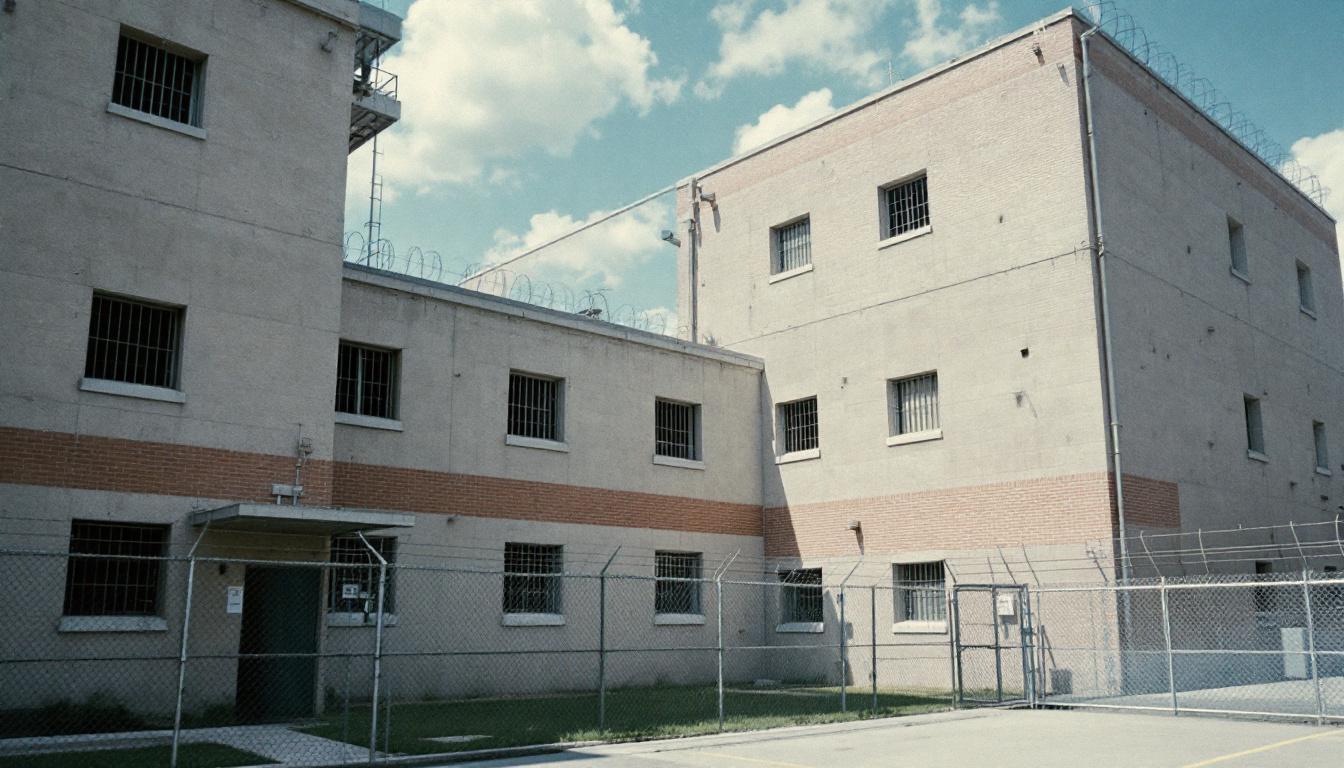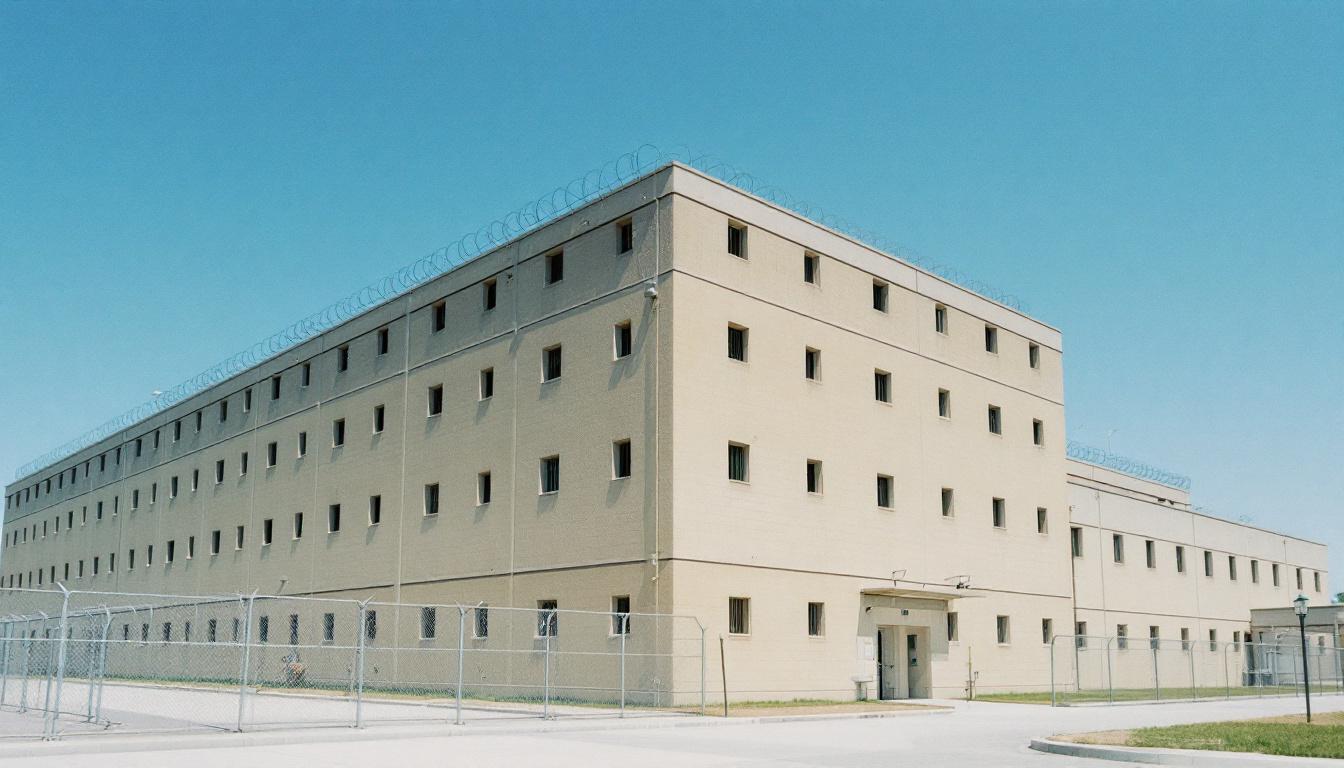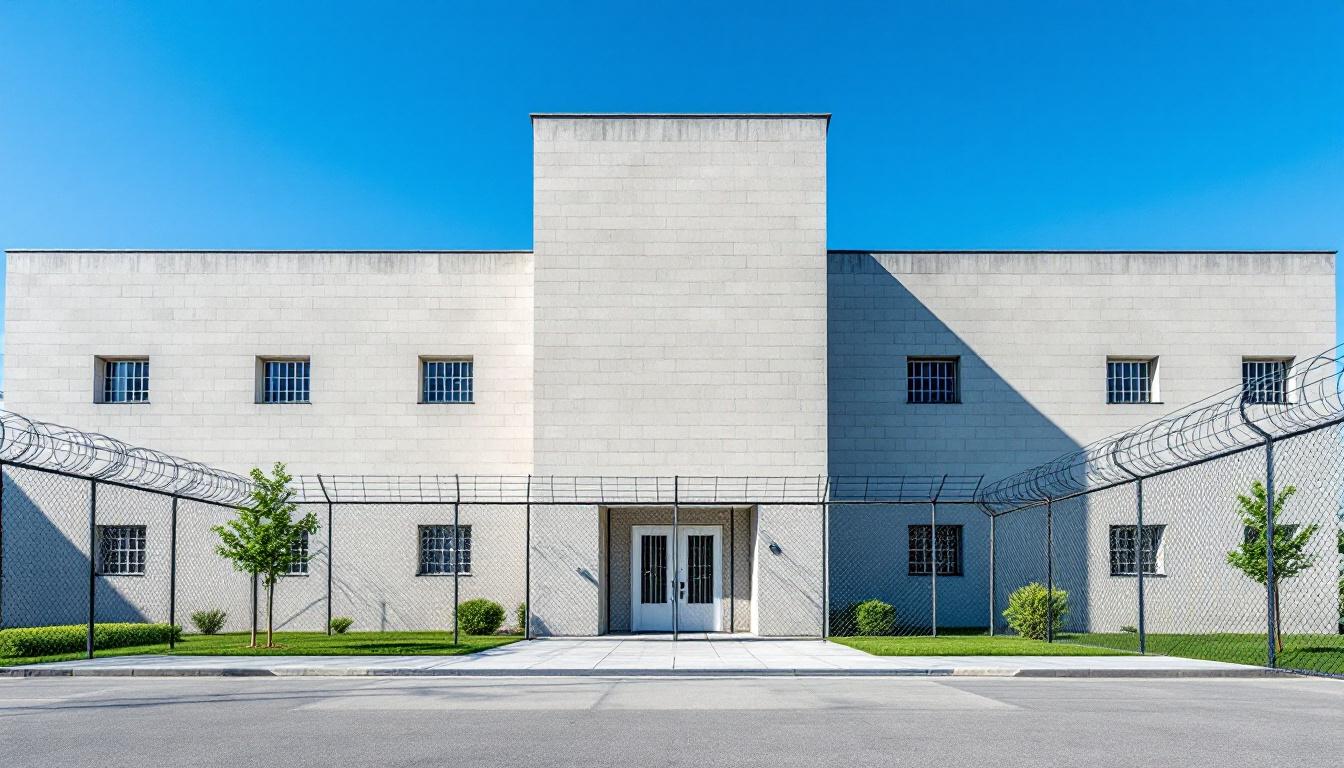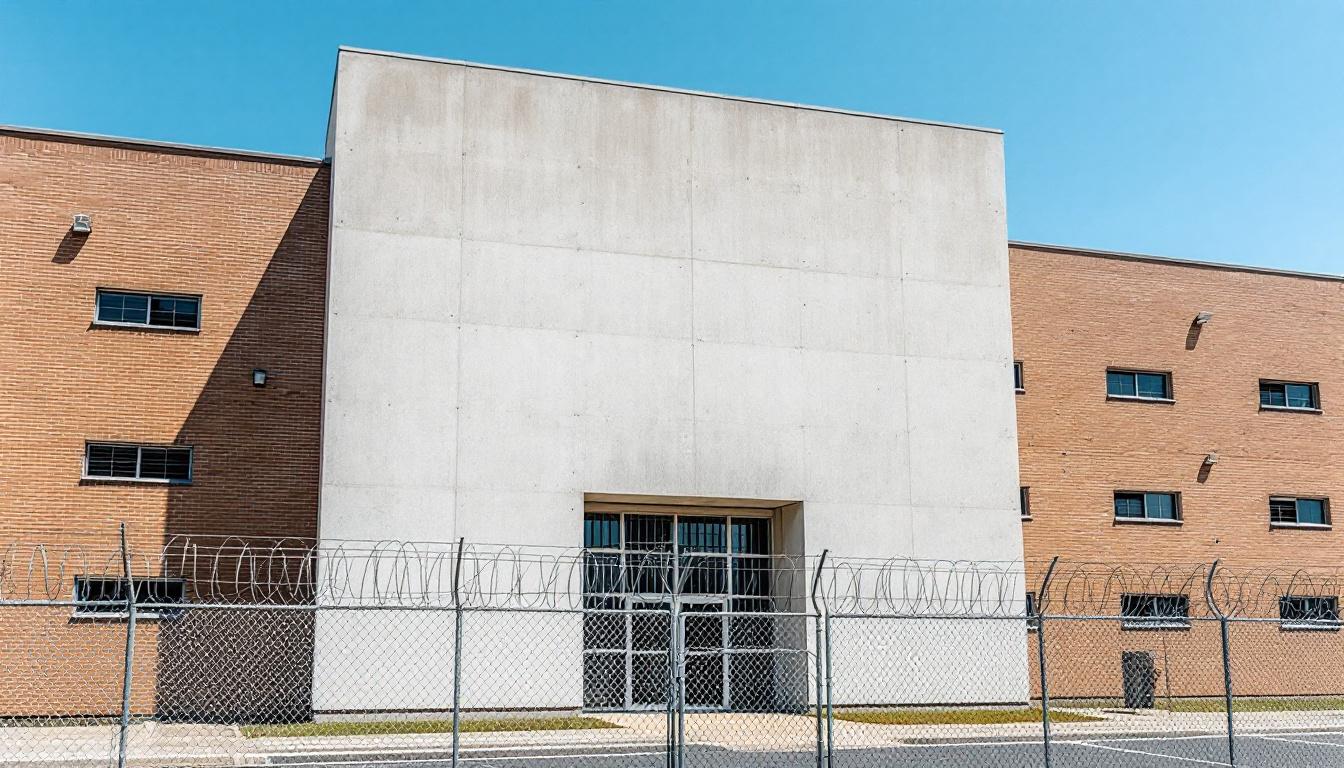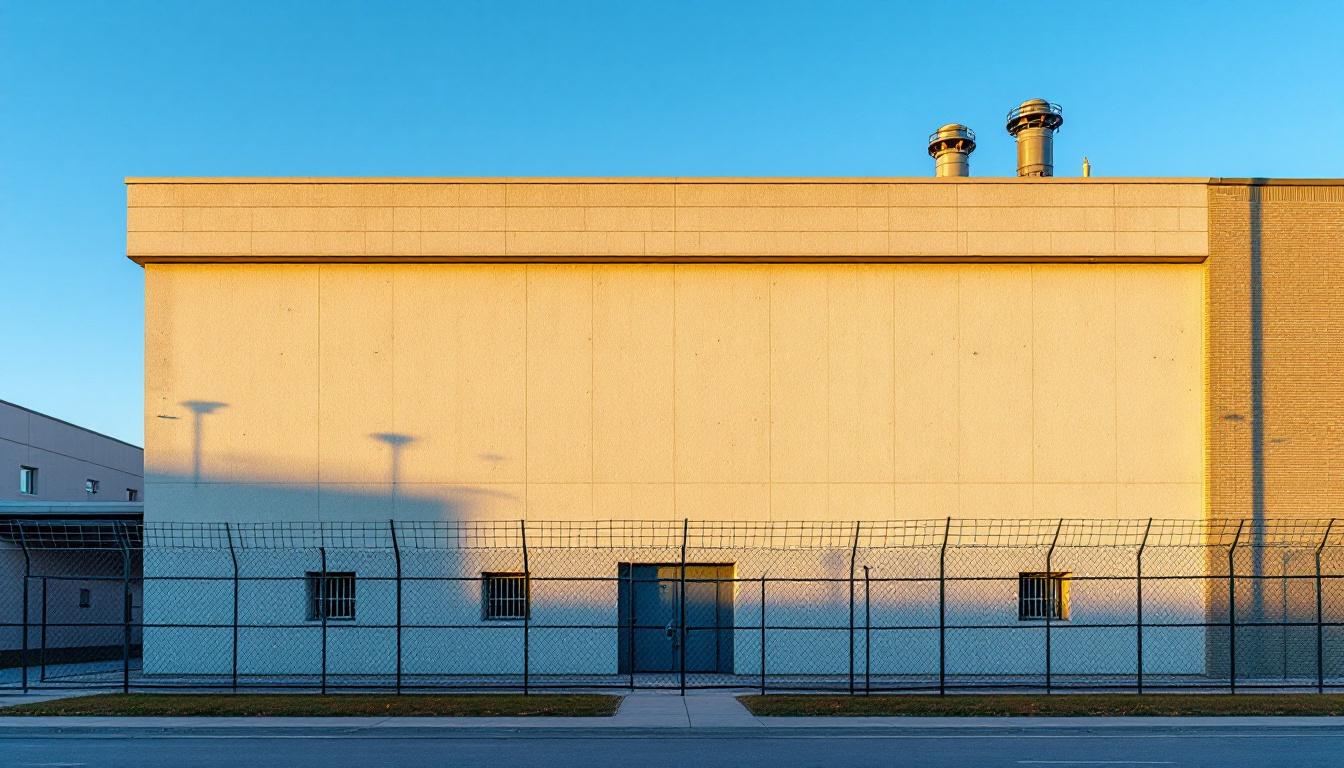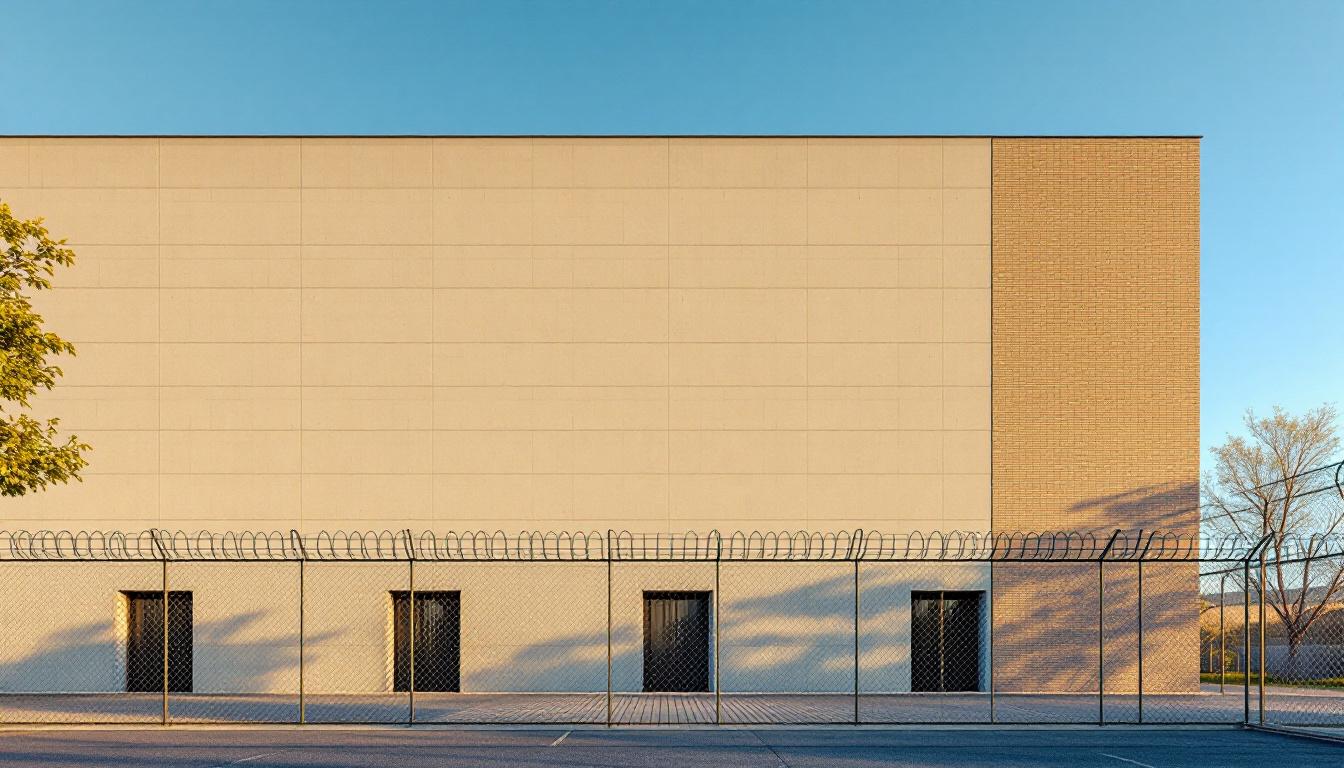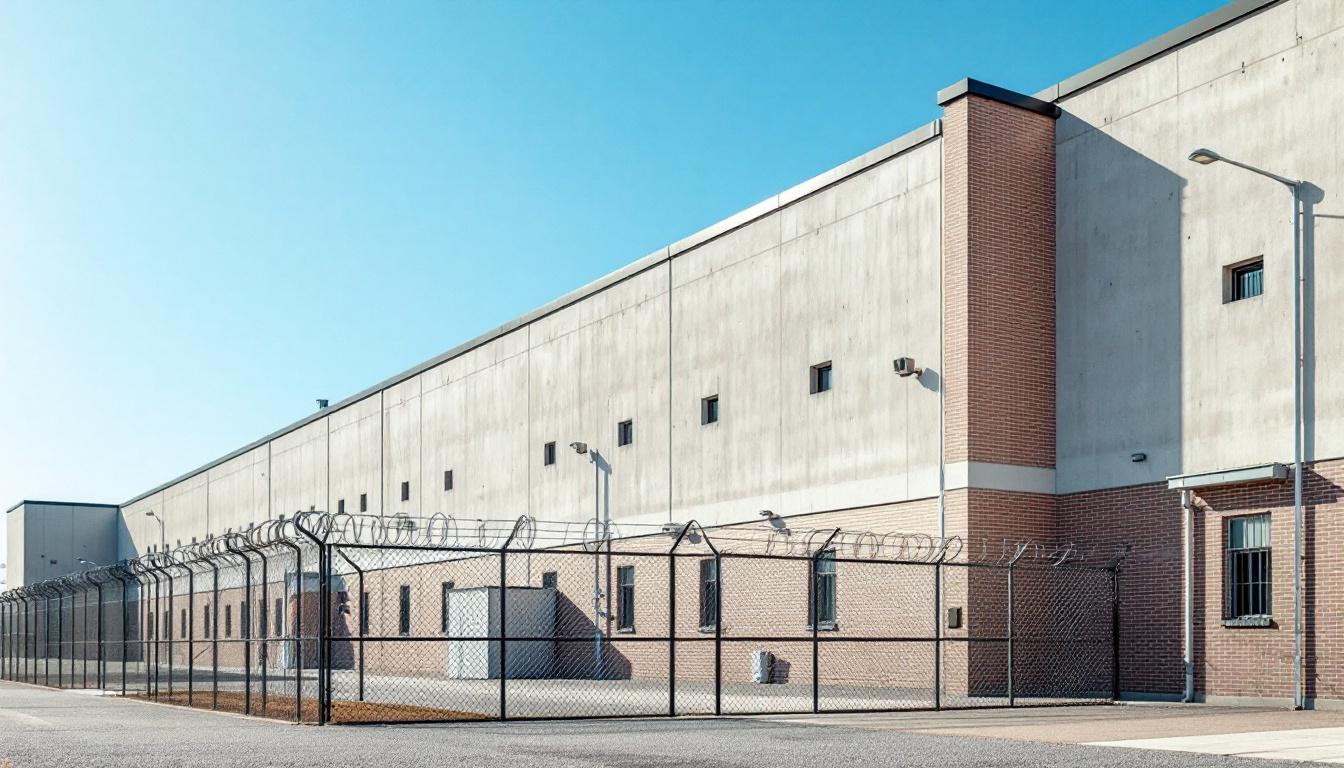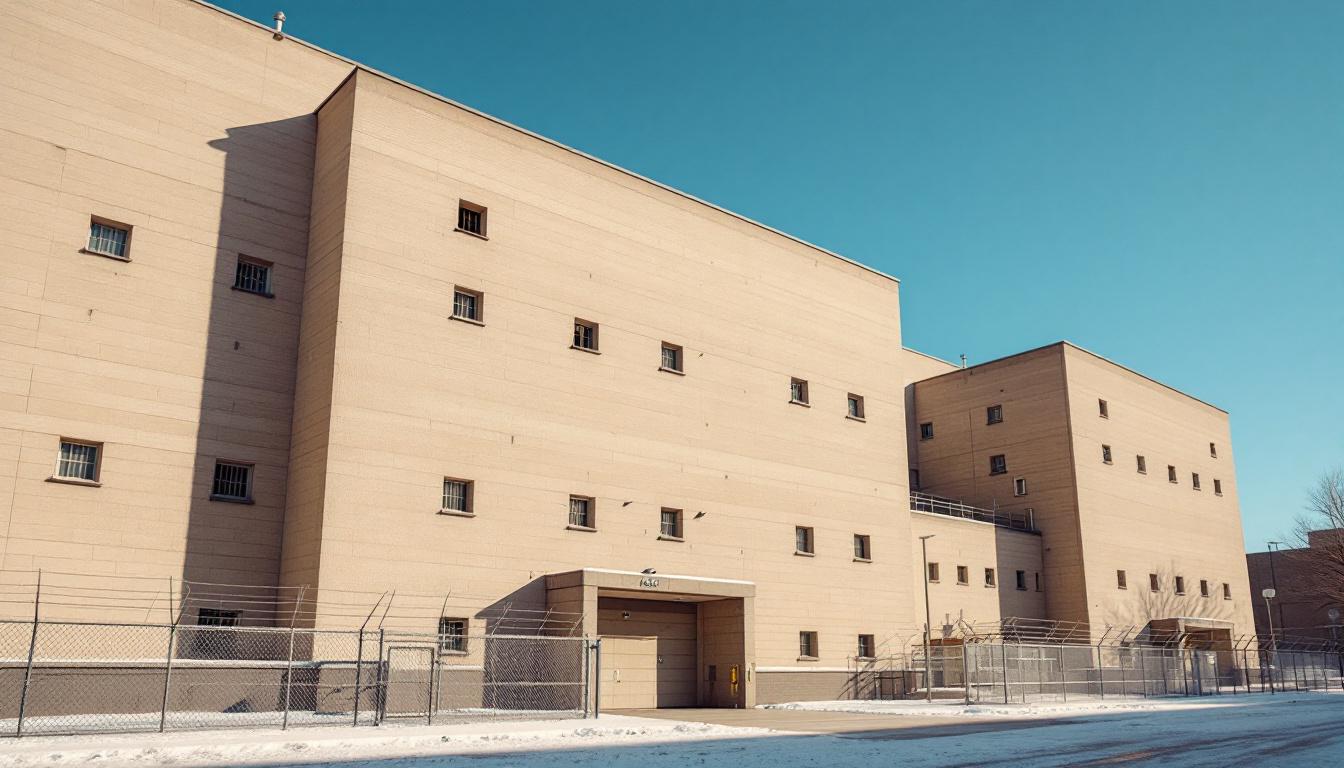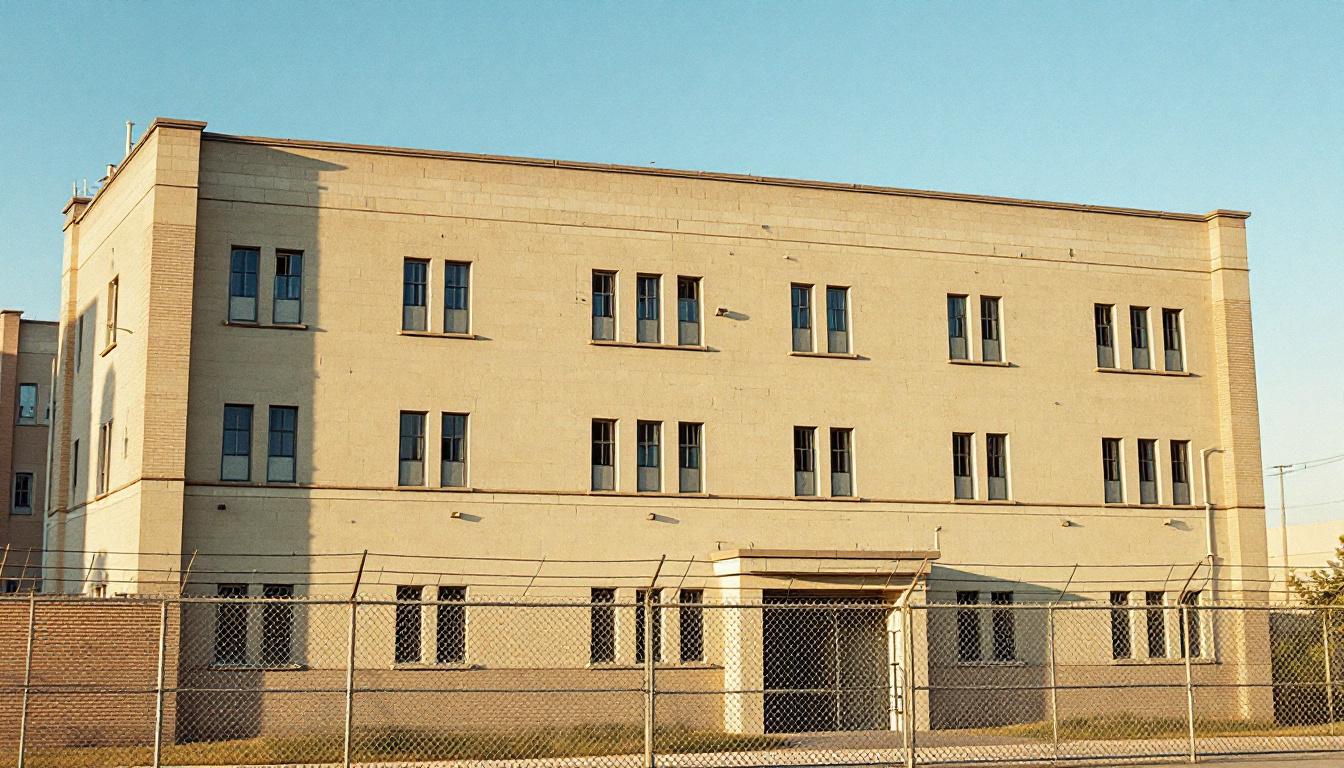
Quick Navigation
How to contact an inmate at Marshall County Jail
This comprehensive guide will walk you through how to connect with an inmate at Marshall County Jail. Follow the steps below to find an inmate and send letters and photos:
- Search for the inmate using our search tool below
- Create your account or log in to Penmate
- Write your message (up to 6,000 characters)
- Send instantly - inmates receive printed copies daily
Find an Inmate
Search for an inmate to start communicating today
Tip: You can search by first name, last name, or inmate ID number
To contact a person at Marshall County Jail start by searching for the person on the official facility website. Perform a search by following these steps:
- Step 1: Enter their first name and last name into the search form and click "Search"
- Step 2: Locate their inmate record
- Step 3: Write down their Inmate ID and any housing information provided
Important! Be sure to enter the person's full name. Nicknames should not be used.
How to Send Messages to Inmates

You can use your phone or computer to send emails, letters, and photos to an inmate. Messages are sent electronically to inmate tablets or kiosks at the facility. If you would like to send a message, start by searching for an inmate at Marshall County Jail.
Sending Photos and Postcards

A great way to send love and support to a loved one at Marshall County Jail is to send photos and postcards. It only takes a few minutes to send photos from your phone and it makes a huge difference. You can also mail postcards with words of support and inspiration, or design your own postcard for special moments like birthdays and holidays.
Important! Be sure not to send any explicit photos or they may not be approved by the facility. You can also use a photo printing app like Penmate to make sure your photos are printed at the correct size (4x6 or 3x5) and are mailed according to the rules and regulations of Marshall County Jail.
Frequently asked questions about Marshall County Jail
-
How long does it take to deliver a message?
If you're sending an email message your letter is usually delivered within 24-48 hours. For messages sent via mail you should expect delivery within 3-7 days. All messages will need be approved by Marshall County Jail.
-
How much does it cost to send a message to Marshall County Jail?
You can send a message free using your phone or mail a message via USPS for the price of a $0.60 stamp and envelope. You can also purchase credits or e-stamps from services starting at $1.99.
-
What services can I use to contact an inmate at Marshall County Jail?
Penmate
You can use Penmate to send letters and photos to an inmate from your phone. It's an easy way to stay in touch during your loved one's incarceration. Use the inmate locator to find an inmate's location and contact information, then you can send messages within a few minutes.
Securus messaging
Securus may be another option for communicating with an inmate at Marshall County Jail. You can create a friends and family account and purchase credits to send messages. All messages will be reviewed and must be approved by the facility.
JPay
Some county jails and state prisons may support sending messages with JPay. You must register an account with the system, find your loved one, and purchase stamps to send messages. For some locations you can also attach photos.
Smart Jail Mail
You may also check if Smart Jail Mail is available at Marshall County Jail. Smart Jail Mail is operated by Smart Communications and has contracted with some state and county jails. After purchasing credits, your messages and photos are sent to the facility, printed out, and then handed out to your loved one.
-
What is the mailing address of Marshall County Jail?
Mailing address:
Marshall County Jail
2369 Jessup Ave
Marshalltown, IA 50158
Phone: (641) 754-6380Business hours:
- Monday: 8:00 AM – 11:00 PM
- Tuesday: 8:00 AM – 11:00 PM
- Wednesday: 8:00 AM – 11:00 PM
- Thursday: 8:00 AM – 11:00 PM
- Friday: 8:00 AM – 11:00 PM
- Saturday: Closed
- Sunday: Closed
-
What are the visiting hours at Marshall County Jail?
Visiting hours at Marshall County Jail vary by housing unit and security level. Generally, visits are scheduled on weekends and holidays, with some facilities offering weekday visits. Contact the facility directly at (641) 754-6380 or check their website for the current visiting schedule. Visits typically last 30-60 minutes and must be scheduled in advance.
-
What items are prohibited when sending mail to Marshall County Jail?
Prohibited items typically include: cash, personal checks, stamps, stickers, glitter, glue, tape, staples, paperclips, polaroid photos, musical or blank greeting cards, hardcover books, magazines with staples, and any items containing metal or electronics. Only send letters on plain white paper with blue or black ink. Photos must be printed on regular photo paper (no Polaroids). Always check with Marshall County Jail for their specific mail policies.
-
How do I send money to an inmate at Marshall County Jail?
You can send money to an inmate at Marshall County Jail through several methods: 1) Online using JPay, Access Corrections, or the facility's approved vendor, 2) Money orders mailed directly to the facility with the inmate's name and ID number, 3) Kiosks located in the facility lobby, or 4) Over the phone using a credit or debit card. Fees vary by method, typically ranging from $2.95 to $11.95 per transaction.
-
Can I schedule a video visit with an inmate at Marshall County Jail?
Many facilities now offer video visitation as an alternative to in-person visits. At Marshall County Jail, video visits may be available through services like Penmate, Securus Video Connect, GTL, or ICSolutions. Video visits typically cost $10-20 for 20-30 minutes and must be scheduled in advance. You'll need a computer or smartphone with a camera and reliable internet connection. Contact the facility for their specific video visitation policies and approved vendors.
-
What identification do I need to visit an inmate at Marshall County Jail?
All visitors must present valid government-issued photo identification such as a driver's license, state ID, passport, or military ID. Minors must be accompanied by a parent or legal guardian who can provide the minor's birth certificate. Some facilities require visitors to be on the inmate's approved visitation list, which may require a background check. Contact Marshall County Jail for specific ID requirements and visitor approval procedures.
-
How can I find out an inmate's release date?
To find an inmate's release date at Marshall County Jail, you can: 1) Use the online inmate search tool if available, 2) Call the facility's records department, 3) Contact the inmate's case manager or counselor, or 4) Have the inmate provide this information during a call or visit. For privacy reasons, some facilities only release this information to immediate family members.
Facility Overview
Contact Information
Marshall County Jail2369 Jessup Ave
Marshalltown, IA 50158
Phone: (641) 754-6380
Official Website

About Marshall County Jail
Positioned within the agricultural heartland of central Iowa, Marshalltown serves as home to Marshall County Jail, IA, a correctional facility that processes individuals through various stages of the judicial system. The facility operates as an integral component of Iowa's broader correctional framework, managing pre-trial detainees, sentenced individuals serving shorter terms, and those awaiting transfer to state institutions. Through its daily operations, the facility typically maintains connections with local courts, law enforcement agencies, and community organizations to facilitate the movement of residents through different phases of their legal proceedings.
The IA correctional facility generally approaches residents services through structured programming that may include educational opportunities, substance abuse counseling, and workforce preparation initiatives. These programs often align with Iowa's statewide correctional goals of reducing recidivism and supporting successful community reintegration. Staff members typically coordinate with various county departments and state agencies to ensure that programming addresses both immediate custody needs and longer-term rehabilitation objectives. The facility's location in Marshalltown allows for potential collaboration with local employers and service providers, creating pathways for residents to access resources that may support their transition back into the community.
Marshall County Jail's operational processes generally emphasize maintaining security while providing access to basic services such as medical care, legal resources, and family visitation. The county jail typically serves residents from throughout Marshall County and surrounding areas, adapting its capacity and services to meet fluctuating population demands while working within Iowa's correctional standards and regulations.
Programs & Services
Rehabilitation-focused initiatives at Marshall County Jail typically center on addressing the underlying factors that contribute to criminal behavior while preparing residents for successful community reintegration. The facility's approach emphasizes skill development and personal growth through structured programming that may deliver both immediate support and long-term benefits. These initiatives often include multiple components designed to address educational gaps, mental health needs, and employment readiness.
Educational services form a cornerstone of the facility's programming, with residents often having access to basic literacy instruction, GED preparation, and adult education opportunities. These academic initiatives may deliver foundational skills that many participants previously lacked, helping them build confidence and improve their prospects for employment upon release. Furthermore, vocational programs typically provide hands-on training in various trades and technical skills, allowing residents to develop marketable abilities that can lead to stable employment. The combination of educational and vocational initiatives often creates a comprehensive foundation for residents to build upon as they prepare to return to their communities.
Support services and therapeutic initiatives round out the facility's programming approach, with mental health services typically addressing substance abuse issues, trauma, and other psychological challenges that residents may face. Library services often provide additional educational resources and recreational reading materials that support ongoing learning and personal development. Furthermore, veteran services may deliver specialized support for military veterans, recognizing their unique needs and experiences. These therapeutic and support initiatives work together to address the complex factors that contribute to criminal behavior while promoting positive behavioral changes and community connections.
Daily Life & Visitation
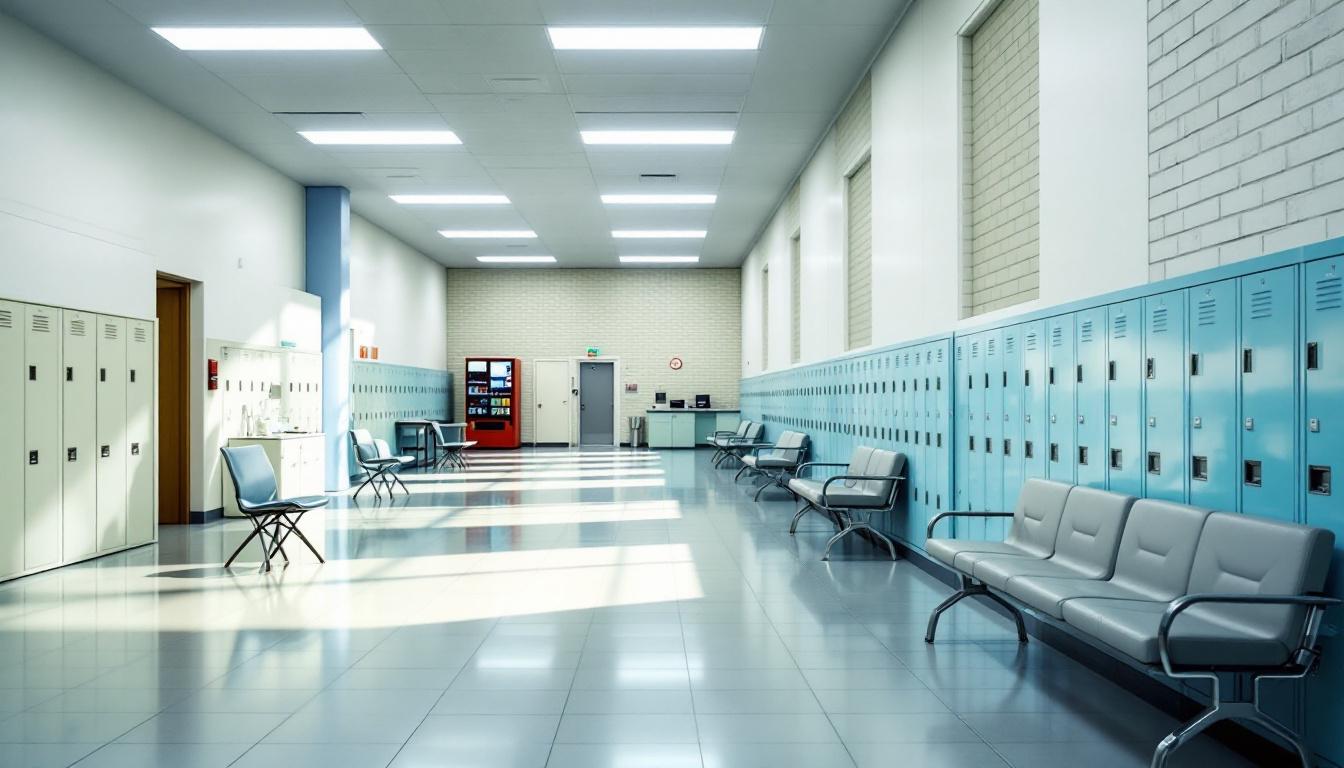
Structured schedules now govern every aspect of residential life, with consistent wake-up calls, meal times, and programmed activities that residents regularly follow throughout each day. This predictable framework typically includes designated periods for personal hygiene, unit cleaning, and preparation for various facility assignments or educational programming.
Housing units generally accommodate multiple residents in dormitory-style or cell-based arrangements, with personal storage space for approved belongings and commissary items. Residents usually receive three meals daily in designated dining areas, with menus that may vary but consistently provide nutritionally balanced options. Furthermore, living spaces typically include common areas where residents can interact during approved recreational periods and access television or reading materials.
Programming schedules often deliver educational classes, vocational training, and counseling sessions that help structure daily routines beyond basic facility operations. Recreation opportunities may include outdoor exercise periods, indoor fitness activities, and organized games when space and staffing permit. Although visitation policies typically limit contact to scheduled times, residents generally maintain family connections through phone calls and written correspondence, with commissary privileges allowing them to purchase personal items and snacks that enhance their daily comfort within the facility's guidelines.
Ready to Connect?
Start communicating with your loved one today
Search for an Inmate
